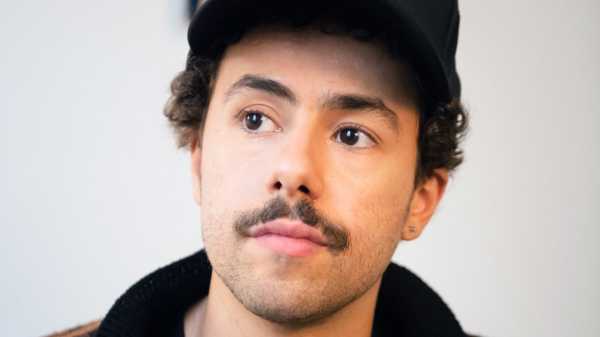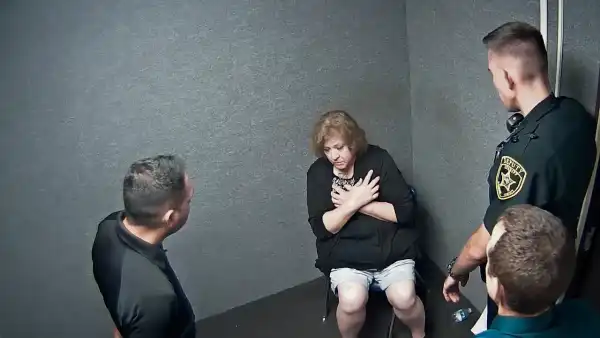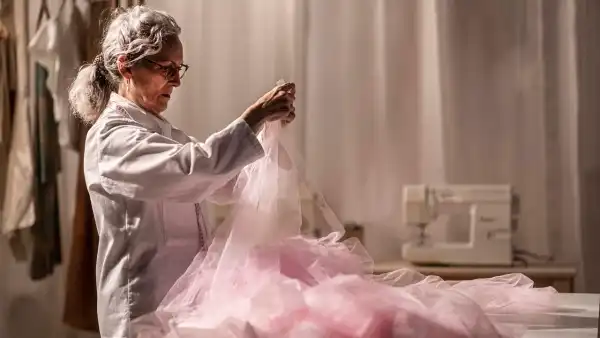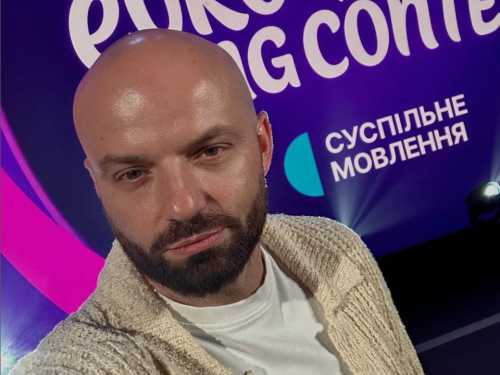
At the 2020 Golden Globes, Jennifer Aniston and Reese Witherspoon presented the award for Best Actor in a Television Series Musical or Comedy. As Aniston opened the envelope to read the winner’s name, she visibly froze up. Witherspoon, sensing what was happening, quickly stepped in to read the name in Aniston’s stead: “Ramy Youssef!” When Youssef arrived onstage to accept his award, for his appearance in his semi-autobiographical Hulu comedy “Ramy,” he told the audience with a sly grin, “I know you guys haven’t seen my show.”
Ironically, it’s exactly this type of awkward friction that Youssef is inclined to depict in “Ramy,” his cult-favorite auteur comedy that has earned him a Peabody and two Emmy nominations. An Egyptian American who grew up in New Jersey, Youssef cut his teeth as a standup comic during his twenties, eventually filming a breakout hour-long HBO special called “Feelings,” which was released in 2019. In the special, Youssef uses a mild-mannered affect as a Trojan horse for some provocative and unsettling ideas about Muslim American identity and masculinity. (He has a recurring fascination with sexual tension between cousins, for example.)
Alongside the indecent provocations in his work, Youssef examines what it means to be a practicing Muslim who is in a state of frequent negotiation with his own version of God. It’s a type of religious identity that’s rarely depicted in film or television, which is why “Ramy” has felt so insistently fresh. In its first two seasons, for which Youssef shared in writing, directing, and producing, “Ramy” constantly put its title character in positions that compromise his faith: offering to help his disabled friend ejaculate, sleeping with a married older woman, cheating on his fiancée with his cousin. In the third season, which premièred on Hulu on September 30th, the show shifts away from Ramy and follows the story lines of his Muslim American family and their struggles with assimilation. There is a telling scene with Ramy’s parents, who are under financial duress, trying to sell their suburban home; their real-estate broker awkwardly advises them to remove certain Arab or Muslim relics from sight to increase the sale value.
I recently met Youssef at his apartment in Brooklyn a few days after he’d returned from a trip to Egypt. Our conversation has been edited and condensed.
This season takes “Ramy” to Jerusalem. Given the time line of events in between the last season and this one—the pandemic, the escalating violence in the Israel-Palestine conflict—when was this season written?
We broke the themes of the show starting in February of 2021, with the intention of shooting that summer. Then I booked a role in a Yorgos Lanthimos movie, and, at the same time, I was making Mo Amer’s show and an animated show. We pushed shooting a few months, to last summer. I’m a big rewriter, so I’ll just change it and see where it’s going. The standup in me is not precious. I can say, “We wrote a thirty-page script but my favorite part of it is pages 3 through 6. So let’s just build around that and we’ll throw everything else out.” That’s something I definitely probably do too close to production.
A sign of genius, to some.
Or a sign of delinquency. I don’t want to romanticize it. I wish I were a lot more organized.
Did the violence in that region at the end of last year intersect at all with filming the third season, or the show itself?
It changed a lot. Last summer, everything that was happening in Israel and Palestine became very public on Instagram. In the U.K., conversations around Israel and Palestine are a lot more nuanced. People tend to know more. There’s a big Irish-Palestinian solidarity because of what the Irish have gone through. In America, it’s kind of been this button you don’t touch, or something you don’t know. When we started writing [in February, 2021], it was kind of, like, “Whoa, we’re going to touch that button.”
And how did things change once you were there?
In our first week of scouting, the journalist Shireen Abu Akleh was killed. The impact of her passing was pretty big. It would be like if something happened to Anderson Cooper. So that affected our shooting plans. We were going to go to the territories, and then we didn’t. We kept everything in Jerusalem and Haifa. Her death was a really wild thing to be there for. These areas tend to kind of fluctuate. Things are O.K., things are not. We were probably there in a peak zone-red type of situation. We attended her wake as a crew. There’s some Americans in the crew. But it was mostly Muslims with Jews at a church in Jerusalem, mourning.
Do you take pains to hire Muslim and Arab crew members, in addition to casting Muslims and Arabs for roles in the show?
When we were in Jerusalem, we had mainly a Palestinian crew. And we worked with a Palestinian director, Annemarie Jacir. And then, in the writing process, I think we have a really diverse writers’ room. Jewish writers, Muslim writers. One of the guiding principles of putting together a writers’ room is a passage from Islamic tradition: “I made you of different tribes so that you could know one another.” In the writers’ room, there will be something that Arabs and Muslims know, and they won’t talk about it because it’s a given. And then someone else will go, “Wait, I’ve never heard of that!” And then you find yourself explaining it in a way that you wouldn’t have done if everyone was the same.
Your show never gets preachy, and you seem quite averse to making any kind of grand political statements. But with this season, given some Americans’ newfound interest in the plight of Palestinians, were you tempted to make a strong pro-Palestine statement? Was there a push and pull there in developing that episode? How did you thread the needle?
My thinking was this: This is a heated issue not just of our time but times that precede us. I was more interested in: “How does the Ramy character go to Jerusalem, and somehow he’s the biggest asshole?” That was my thesis. How is there unification in the sense that almost everyone on every side of this is, like, “What the fuck is going on with this guy?”
There’s a bit in your standup special about your dad working for a Trump hotel, and you grew up with a framed photo of your dad with Donald Trump in the house. You once said that your dad hid that photograph because he didn’t want you to keep using it in your material. Since the new season is so family-oriented, what are the conversations you have with your own family about what you can and cannot use in your work? Do you set terms?
When I started the show, there was an initial shock of “Oh, whoa, our son is onscreen and he’s doing all these things that we hope he’s not doing in real life.” Then it kind of transitioned into them being incredibly supportive. My relationship with my family has gotten even more intimate since the show. In the beginning, the show was closer to real life, but now the characters have taken on a life of their own. It’s only my family insomuch as it is a family.
You have one of the most interesting lists of guests and supporting cast on television. Last season centered around Mahershala Ali, and this season you’ve brought in Christopher Abbott, Sarita Choudhury, and, most notably, Bella Hadid. What’s been your approach to casting?
When you build a show, especially if someone is a new comic like me, you’re supposed to get a famous person to play, like, the dad. We were in this gray area for that formula. We said, “We’re not making a show where we’re neighbors to a famous white celebrity. This is going to be its own world.” And, because it was its own world, there actually wasn’t this pool of famous people. And I think Amr Waked, who plays my dad, and Hiam Abess, who plays my mom, were known outside of America, but not to the level where they’re going to get a program green-lit. So I think our first season was really cool because no one was known.
I think that attracts actors. They know I’m not making this as some kind of celebrity bait, and that makes all the conversations feel organic. Mahershala called me to say, “I love the show. Let me know if I can ever do anything for you.” I called him back a week later and I was, like, “Do you want to come, like, be in it?” I can’t turn down this opportunity. My dad raised me to do business!
When you first met Mahershala, did you have conversations about faith, and specifically the experience of Black Muslims?
Big time. He said to me, “I can’t believe this. I remember being an actor after 9/11, and my name immediately became this huge issue. Now I’m playing this role, and we’re praying between lighting setups on set, and everyone knows that’s what we’re doing. I can’t believe that. This is just incredibly surreal.”
How have the other actors come into the fold?
We had Chris Abbott this season, who I really love. We had just shot this movie together with Yorgos Lanthimos in Budapest. We had known each other for years. We had this role, and he just made it something else. Same thing with Bella Hadid. We had this role—it wasn’t written for her, it wasn’t changed for her. I met with her, and I felt this really cool level of emotional intelligence. It’s not that I didn’t expect her to be emotionally intelligent. There are certain people you sit with, and you say, “Oh, you have access to emotions on the level of an actor.” Even if she hadn’t acted before, I was, like, “Oh, we can do this. A hundred per cent, if you’re down to trust me and just jump into it.” She was in. She was just ready, and she showed up.
Bella Hadid plays an awkward young woman who is dating one of Ramy’s close friends. The Ramy character suspects she is, in his words, “spectrum-ish.” When you approached her, was there any trepidation in giving her that role, especially since neurodivergence on television is a hot-button issue?
[A large dog wanders into the living room.]
This is actually not my dog. It’s my neighbor’s dog.
[The neighbor walks into the living room unannounced. The dog wanders over to Ramy’s dog’s water and food bowl.]
R.Y.: Hey! What’s up?
Neighbor: We’ll talk later. Are you around tonight?
R.Y.: We might be, actually.
Neighbor: We’re having some friends over. Want to come up, have a drink with us?
R.Y.: I’ll watch you guys drink.
[They both laugh. The neighbor leaves.]
R.Y.: When you see the latest version of the show, it’s actually been edited so she is not neurodivergent. We pulled a lot of the mentions of the word “autism.” I kept watching the episodes and thinking, “I didn’t nail the bit.” No one in the network told me to take it out. No one said it was inappropriate or flagged it as a concern. I, personally, was, like, “I don’t think we need it.” I’m now presenting her character a little differently. But it’s kind of part of the process in the sense that you try stuff, and you always want to be kind of touching a button.
I hope you didn’t cut the part where Bella Hadid comforts Steve [Steve Way, Youssef’s real-life longtime friend] by humming the song from “The Office.”
Our original premise of that moment was there are so many people who feel like they’re in a relationship just because they watch “The Office” together. And that’s what it became. We made it about these two people who love “The Office” so much. I remember just shooting it, and being, like, This is the weirdest and sweetest thing we’ve ever done. I just felt so happy.
“Ramy” is generally well received among a lot of white liberals and Hollywood people, but it has rankled various Muslim communities, as well as some right-wingers. Do you get any gratification over that? Do you like to touch the stove a bit?
I think it’s part of the nature of comedy. Look, I’m a public person who’s comfortable talking in front of people. If I didn’t like to touch the stove, I would become an imam. But I don’t like touching the stove because of the reaction. I don’t get enjoyment from people being upset. Looking at this work from a spiritual perspective—I believe everyone, on some level, views the world in two halves, which is the seen and the unseen. You know there’s something that you don’t see, and you have some sort of negotiation with it. Television and film is this opportunity to combine the seen and the unseen, and to create an experience that’s a glitch. It can be a mirror, and it can artificially join those two realms, and hopefully start conversations. The goal of this show for me is to bring people closer to their questions, because the character Ramy is a seeker.
How about the sexual relationships on the show?
There are people who are very uncomfortable with sex. And they want Arabs and Muslims to be seen a certain way. And I actually sympathize with them, because they feel a scarcity of Muslims and Arabs on TV where they’re not violent, on the news, or villainized. And then my show comes along, and they’re seeing a bunch of sex that they’re not comfortable with. I’m interested in why they might be pissed. That opens up something else. There are people who don’t like sex, and they watch the show and they’re, like, “Why are they fucking all the time?” And there are people who are really uncomfortable with religion and they’re, like, “Man, these people can’t stop praying.” Our final episode of the season is what I view as this spiritual breakthrough for the character of Ramy. But if you’re not a religious person you might think he’s having a panic attack. And that’s O.K., because he might be. It might be both.
You were in Egypt recently. What were you doing there?
A lot of the music in Season 1 of “Ramy” is stuff that I had heard growing up but wasn’t on Spotify or anything. There’s this record label called Habibi Funk. It’s this German guy who digitized a lot of records or tapes that were sitting around in North Africa. He started doing this years ago, digitizing everything. It was right around the time that we were figuring out the sound and music for “Ramy.” The label had a really low profile. We put a bunch of the music in the show, and then these artists started getting all these residuals, getting put in Dutch Coca-Cola commercials. They start making all this money.
We’re making this vinyl together, and on this trip to Egypt I got to meet all these artists. I got to meet these legends of Arab music. I tell them, “I hear your music in Lower East Side restaurants.” They can’t believe it.
“Ramy” is a quintessential auteur comedy with a very specific perspective. How was the show conceptualized, back in 2017?
We shot the pilot in 2017. I remember the Muslim-ban thing happening and everyone being, like, “What?” And us being, like, “Well, yeah, this is the result of a twenty-plus-year campaign to dehumanize a group of people.” There’s that element of it. But the thing that was more interesting to me was spiritually based. I felt like any representation of spirituality was wildly out of proportion. It was either “angels and heaven” and it doesn’t feel real, or you saw an archetype of a character who is an immigrant in a religious family, and it almost feels like their goal is to shed this baggage. This undertone of, “Hey, I want to be white, too.”
And how did you go about pitching and making it? You were relatively unknown, and it was in the early days of the streaming boom.
I had this hour of standup taped from the Laugh Factory. Even the tape was kind of an accident, because two comics didn’t show up and I got to stay onstage longer. So I had this kind of accidental tape, and that set had a lot of the premises that are in the first season. We sent that tape to a bunch of networks, and it had a point of view. We’d crafted all these characters. We took it out to a bunch of places. Hulu was the place that said, “We’re shooting a pilot no matter what.”
You mentioned your role in the upcoming Yorgos Lanthimos film “Poor Things,” which has a long roster of Hollywood A-listers. Can you talk about that experience?
Yorgos is just . . . He’s the coolest dude. I wish I could say something more nuanced. The thing that was so amazing about working on a film like that was we rehearsed for many weeks. A majority of the rehearsal was core cast. With me, Emma Stone, Mark Ruffalo, Willem Dafoe. It was the craziest first day of school.
Was this your first time being a hired hand on a prestige Hollywood project and being directed by someone else?
I had an experience doing a scene on a Gus Van Sant film with Joaquin Phoenix many years ago. And I remember that was a little glimpse of sitting across from someone who is obviously just a master. This was unlike anything else.
Someone shared this really funny thing with me about the last couple of Golden Globe winners who are quote-unquote diverse. They all played three or four different roles on their show—writing, producing, directing, acting. It’s the thing of “I gotta do everything.” There’s this total immigrant-hustle mentality of doing that across various projects, and I really enjoy that type of work. But this was such a gear switch to just show up and act. I was surprised at how expressed I felt doing that, and how much I trusted Yorgos. Emma Stone is a pure comedic genius. She is the funniest person I’ve ever been across. And then just . . . dinner with Willem Dafoe and Ruffalo. What the fuck? The whole thing was just “What the fuck?”
What role does standup comedy play in your life now?
With the show, there’s a huge gap between the idea and the laugh. The time between writing and airing is such a monastic time span, where you have to be patient. Standup is thinking about something in the morning and it’s, like, “Oh, shit, I’m going to go do that tonight.” I’ve been really working a lot, and I’ve sometimes been exhausted. And my mom was in the hospital for months. She’s O.K. now, thank God. But that was a really long path. Even my off time wasn’t off. But about two months ago I was, like, “Let me set up a standup show and see where things are going.” I’ll probably shoot another special in January. And so much of Season 3 is based on standup premises. Even standup premises that failed. A lot of times I’ll think of something for standup and, to be honest, it’s an Uncle Naseem thought. That’s where the show is a really fun outlet.
At your core, do you still feel like your identity is as a standup?
You know, when I think about who I am it’s more defined by personal-life stuff. I don’t think . . . I don’t feel like I have an identity attachment to what I do. The more that time goes on, it’s more about what’s happening with the people I know.
I almost don’t want to say this, because I don’t want to be cheesy, but I feel like getting married and working on a relationship is my greatest accomplishment. Without a doubt. That means so much more to me than popularity. It feels weird saying that publicly, but that is how I feel. I want to think about myself more as maybe a dad at some point, as a husband, as a friend. Working this much, I’m at a crossroads now where I’m being more active about expending my energy maintaining friendships. When you’re writing on deadline, it’s almost like “Fuck everything. I’m going to be in this shithole and eat dumb shit and get through it.” I can’t do that anymore. So that’s been more of how I feel with that stuff.
That couldn’t be more different from the Ramy character that people see on the show.
Which is fun for me, honestly. But it also makes me feel like I wish had picked a different name. ♦
Sourse: newyorker.com






